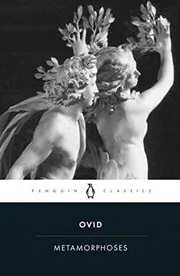Metamorphoses Summary
Author: Ovid
This page offers our Metamorphoses summary (Ovid's book). It opens with an overview of the book, and follows with a concise chapter-by-chapter summary.
Drafted with AI assistance and reviewed by a human editor.
As an Amazon Associate, we earn from qualifying purchases (at no extra cost to you).
This book has 1 recommender!
Overview
The narrative begins with an invocation to the divine entities for guidance and introduces the central theme of transformation. The narrator intends to recount an uninterrupted epic from the dawn of creation to the present era. The creation saga unfolds with an initial state of disorder evolving into a structured world, giving birth to humankind. However, human misconduct prompts divine retribution, and Neptune and Jupiter annihilate the entire human race, sparing only Deucalion and Pyrrha for their devoutness. Subsequently, a refreshed human race arises.
The plot then transitions into divine-human relations across five books, starting with the topic of divine violation. The earliest incidents include Apollo's attempted assault on the nymph Daphne, who is saved by her father who transforms her into a laurel tree, and Jupiter's transgressions against Io, Callisto, and Europa. It explores the fatal chariot ride of Phaethon that almost brings world destruction. The founding of Thebes by Cadmus and related narratives, including the demise of Actaeon and Semele, the birth of Bacchus, and Pentheus's refusal to acknowledge Bacchus, form the core of subsequent stories. The segment concludes with a singing competition between the Muses and Pierides and a weaving contest between Minerva and Arachne, resulting in the transformation of the losers into birds and spiders, respectively.
The narrative traverses into the territory of heroes and heroines in the next segment. It encapsulates Jason's quest for the golden fleece, stories exhibiting Medea's magic and power, Minos's war strategy against Athens, the siege of Alcathous, and Scylla's infatuation with Minos. The miraculous appearance of the Myrmidons, the melancholic story of Cephalus and Procris, the Calydonian boar hunt, and Meleager's tragic death craft the subsequent episodes. The section ends with a detailed account of Orpheus's life, including the stories of Pygmalion, Myrrha, Hippomenes, and Atalanta. The narrative then inches towards the Trojan War era, presenting Achilles' fight with Cycnus, Caeneus's combat with centaurs, the love story of Ceyx and Alcyone, and Ulysses's victory over Ajax in a verbal duel for Achilles' armour. The narrative then journeys through Roman history, prophesying a bright future for Rome and immortalizing the narrator's work.
Edited by
Software engineer whose passion for tracking book recommendations from podcasts inspired the creation of MRB.
Lead investor at 3one4 Capital whose startup expertise and love for books helped shaped MRB and its growth.







Comments
Did we miss something? Have feedback?
Help us improve this page by sharing your thoughts